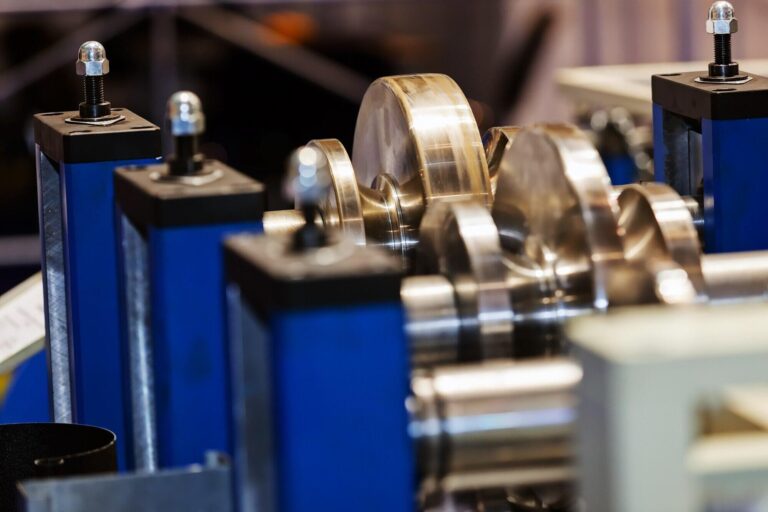Beyond the Surface: Why Solar Panel Cleaning is Crucial for Efficiency and Longevity
Solar panels are an incredible investment, turning sunlight into electricity and helping reduce energy bills. But as with any investment, maintenance is key to maximizing its value. While solar panels are built to withstand the elements, dirt, grime, and environmental debris can accumulate on their surfaces over time, significantly impacting their efficiency.
In this article, we’ll take a deeper look into the often-overlooked aspect of solar panel maintenance: cleaning. We’ll explore why keeping your panels clean is essential, how dirt affects their performance, and the best practices for maintaining their optimal functionality.
The Silent Performance Killer: How Dirt Impacts Solar Panels
Imagine investing in a solar energy system with the promise of harnessing free power from the sun, only to find that your energy savings are less than expected. One of the culprits could be the dirt, dust, and debris that accumulate on your solar panels, reducing their ability to absorb sunlight effectively.
- The Science Behind Solar Panel Efficiency:
- Light Absorption: Solar panels work by capturing sunlight and converting it into electricity. However, when the surface of the panels is covered in dirt, the amount of sunlight that reaches the photovoltaic cells decreases. This reduction in light absorption directly impacts the efficiency of the panels, leading to lower energy output.
- Energy Loss: Even a thin layer of dust can reduce the efficiency of solar panels by up to 5%, and more substantial accumulations can result in energy losses of 20% or more. This means that your solar energy system is not performing at its full potential, and you’re not getting the maximum return on your investment.
- Environmental Factors and Their Effects:
- Urban Pollution: In urban areas, pollution from vehicles, industrial activities, and construction can quickly cover solar panels with a layer of grime. This pollution not only reduces efficiency but can also lead to long-term damage if not cleaned regularly.
- Bird Droppings and Leaves: Areas with high bird populations or trees nearby can also pose a problem. Bird droppings, leaves, and other organic matter can create hotspots on the panels, leading to uneven heating and potentially damaging the cells. Regular cleaning prevents these issues, ensuring that your panels remain in good condition.
The Economic Impact of Solar Panel Cleaning
While the upfront cost of installing solar panels is significant, the long-term savings on energy bills are where the true value lies. However, dirty panels can erode these savings, making regular cleaning a financially wise decision.
- Maximizing Your Return on Investment:
- Energy Output: Solar panels are a long-term investment, and their value is directly tied to their energy output. Clean panels produce more electricity, which translates into higher savings on your energy bills. Over the lifespan of your solar panels, this can add up to a significant amount of money saved, offsetting the cost of the initial investment.
- Avoiding Costly Repairs: Dirt and debris can cause damage to the panels over time, leading to the need for repairs or even replacement. Regular cleaning helps prevent this damage, saving you from unexpected expenses. Additionally, many solar panel warranties require regular maintenance, including cleaning, to remain valid. Neglecting to clean your panels could void the warranty, leaving you responsible for any repairs.
- The Role of Professional Cleaning Services:
- Efficiency and Safety: While cleaning solar panels might seem like a straightforward task, doing it incorrectly can cause more harm than good. Professional solar panel cleaning services in Silicon Valley have the right tools, expertise, and safety measures in place to clean your panels without damaging them. This is especially important for rooftop installations, where safety is a concern.
- Regular Maintenance Plans: Many solar panel owners opt for professional cleaning services that offer regular maintenance plans. These plans ensure that your panels are cleaned on a schedule that maximizes their efficiency and lifespan. By outsourcing this task, you can rest assured that your panels are always operating at their best without having to worry about the logistics.
DIY Solar Panel Cleaning: What You Need to Know
For those who prefer a hands-on approach, cleaning your solar panels yourself is entirely possible. However, it’s essential to do it correctly to avoid damaging the panels or injuring yourself.
- Tools and Materials:
- Water and Mild Soap: The best cleaning solution for solar panels is often the simplest—water and a mild soap. Avoid harsh chemicals, as they can damage the surface of the panels or leave a residue that reduces their efficiency. In most cases, plain water is sufficient to remove dust and dirt.
- Soft Brush or Sponge: Use a soft brush or sponge to gently scrub the surface of the panels. Avoid using abrasive materials or harsh scrubbing, as this can scratch the panels and reduce their efficiency. A squeegee can be useful for removing excess water and ensuring a streak-free finish.
- Safety Considerations:
- Working at Heights: If your solar panels are located on the roof, safety is a top priority. Use a sturdy ladder and consider wearing a safety harness if the roof is steep or slippery. It’s also a good idea to have someone else present to assist or call for help if needed.
- Electrical Hazards: While solar panels are designed to be weatherproof, it’s still important to take precautions when cleaning them. Turn off the system before you start, and avoid spraying water directly at the electrical components. If you’re unsure about how to clean your panels safely, it’s best to hire a professional.
- Timing and Frequency:
- Optimal Cleaning Times: The best time to clean your solar panels is early in the morning or late in the afternoon when the sun is not at its peak. Cleaning during the hottest part of the day can cause the water to evaporate quickly, leaving streaks or spots on the panels.
- Seasonal Cleaning: The frequency of cleaning depends on your location and environmental factors. In most cases, cleaning your panels twice a year—once in the spring and once in the fall—is sufficient. However, if you live in a particularly dusty or polluted area, or if your panels are frequently covered by bird droppings or leaves, more frequent cleaning may be necessary.
Conclusion: Clean Panels, Maximum Efficiency
Solar panels are a powerful tool for harnessing renewable energy, but their efficiency depends on regular maintenance. Cleaning your panels is a simple yet effective way to ensure that they operate at their full potential, providing you with maximum energy output and financial savings.
Whether you choose to clean your panels yourself or hire a professional service, the key is consistency. Regular cleaning prevents the buildup of dirt and debris, protects your investment, and ensures that your solar energy system continues to perform efficiently for years to come.
Remember, the cleaner your panels, the more sunlight they can capture—and the more energy they can generate for your home. Embrace the power of maintenance, and keep your solar panels shining bright.







